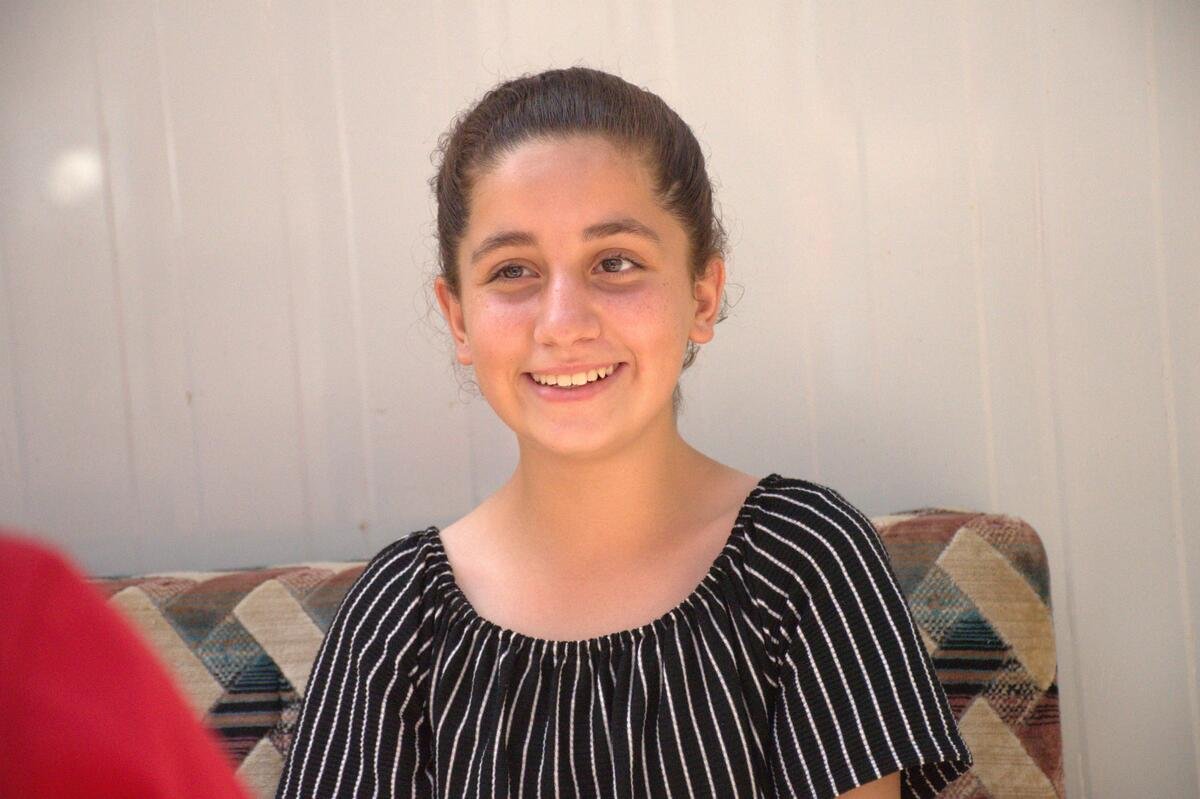Overcoming earthquake trauma through games and the arts in Türkiye
Above: 13-year-old Sara attends a Child Friendly Space in Andiyaman, Türkiye. Her family home was destroyed in the earthquake and she is currently living in temporary accommodation. Photo: Save the Children
If 13-year-old Sara* had a magic wand to fix one thing in the world, she would get rid of disasters, like earthquakes.
“I wish they wouldn't happen. I would like to go back to living our normal lives.”
Sara has been living in a container camp since her home in a small village in the province of Adiyaman was destroyed in the devastating earthquakes that hit southern Türkiye on 6 February this year.
She lives in one of the containers with her parents and four siblings. Their temporary home is located in a camp with around 1000 other people affected by the earthquake.
Despite the challenges Sara faces, she is determined to continue her studies, inspired by her older sisters – one is a teacher, and the other is studying at university. Currently, she is in 7th grade and enjoys subjects such as English and Mathematics.
Since the earthquake, Sara's social nature has led her to spend most of her time in school, where she finds a sense of normalcy. Sara has a deep passion for making a positive impact on the world and a strong drive for social justice and fairness.
“I want to become a lawyer, because I believe myself to be just person,” she says.
Sara has been attending one of the Child Friendly Spaces established by Save the Children Türkiye with funding from the Australian Government through the Australian Humanitarian Partnership. In the Child Friendly Space, Save the Children’s mental health and psychosocial support teams - which consist of child psychologists and social workers - have tailored activities for children like Sara to overcome the trauma they experienced during the earthquake.
Activities at the spaces include crafts, music and dance. The activities encourage children to use their senses, play and have fun in a safe space, ultimately allowing them to be children again. Through the Child Friendly Spaces, children receive the support they need to deal with their daily realities, while building back their confidence and self-expression.
The sessions also help to build peer relationships between children who have gone through similar experiences.
“I love all the activities,” Sara says. “They are all very enjoyable and allow me to have good time with my classmates and friends.”
“But my favourite activities are music and the dancing circle, and the rhythm game. And I most liked using the modelling clay since I’m gifted in handicrafts, and I love to do them.”
The earthquakes in Türkiye and Syria in early 2023 left 9.1 million people in need, including 2.5 million children from Türkiye. In any disaster, children are always the most vulnerable. Mental health and psychosocial support is crucial so they can overcome their trauma in a safe environment and be children once again.
*name changed


